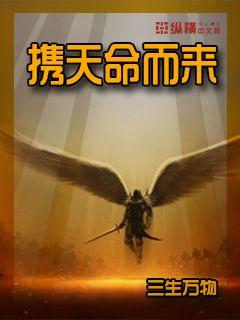
Certainly! Here's the structured article about S. Devrij, a Dutch defender, focusing on his football career and technical style.
**Article Abstract:**
Stefan de Vrij, renowned for his defensive prowess and tactical acumen, exemplifies the modern Dutch defender. From his formative years to international acclaim, his journey unfolds through a blend of strategic insight, defensive resilience, and leadership on the field. This article delves into his career trajectory, technical attributes, tactical impact, and the broader influence of his playing style within contemporary football.
---
1、Early Career and Development
Stefan de Vrij's early years in football laid the foundation for his future success. Born in Ouderkerk aan den IJssel, Netherlands, on February 5, 1992, he displayed promise from a young age. He joined the youth academy of Feyenoord Rotterdam, where his defensive abilities quickly stood out. De Vrij's positional awareness and composure under pressure were evident even in his formative years, attributes that would define his career.
His progression through Feyenoord's ranks was marked by consistent improvement in both technical skills and tactical understanding. By the time he made his first-team debut in 2009, he had already established himself as a reliable central defender. De Vrij's ability to read the game and initiate attacks from the backline showcased his versatility beyond defensive duties.
As he continued to mature, De Vrij became a pivotal figure in Feyenoord's resurgence in Dutch football. His leadership qualities began to shine through, earning him the captain's armband at a young age. This period not only solidified his status as one of the top defenders in Eredivisie but also caught the attention of European clubs scouting for defensive talent.
2、Technical Skills and Defensive Prowess
De Vrij's technical prowess as a defender sets him apart in contemporary football. His exceptional ability to time tackles and interceptions with precision reflects his astute reading of the game. Known for his aerial dominance and strong positional play, he combines physicality with tactical intelligence seamlessly.
His passing accuracy and distribution from the backline are crucial in building play from defense to attack. De Vrij's proficiency in initiating attacks through long balls and short, incisive passes adds a dynamic dimension to his defensive role. This technical finesse not only stabilizes his team defensively but also contributes significantly to offensive transitions.
Moreover, his adaptability across different defensive systems highlights his versatility. Whether operating in a back four or three, De Vrij's understanding of defensive lines and covering spaces remains consistent, a testament to his tactical flexibility and football IQ.
3、Tactical Impact and Leadership
De Vrij's tactical impact extends beyond his individual contributions. His ability to organize and communicate effectively on the field enhances defensive cohesion. His leadership qualities, honed over years of experience, guide younger teammates and influence team strategies during matches.
Within the Netherlands national team setup, De Vrij's presence has been instrumental. His performances in major tournaments such as the UEFA European Championship and FIFA World Cup underline his ability to thrive under pressure. His partnership with other defenders and coordination with the goalkeeper exemplify his role as a defensive linchpin.
Off the ball, De Vrij's anticipation and reading of opposition movements allow him to neutralize threats effectively. His awareness of defensive transitions and quick decision-making contribute to his team's overall defensive solidity.
4、Legacy and Influence in Modern Football
Stefan de Vrij's career trajectory and technical acumen have left a lasting impact on modern football. His journey from Feyenoord to prominent European clubs like Lazio and Inter Milan signifies his international stature as a defender. Beyond his club achievements, De Vrij's role in the resurgence of Dutch football on the global stage underscores his influence.
His style of play, characterized by intelligence, composure, and defensive reliability, serves as a benchmark for aspiring defenders worldwide. De Vrij's ability to evolve with the tactical demands of the game reflects his dedication to continuous improvement and professional excellence.
In conclusion, Stefan de Vrij's career illuminates the essence of a modern-day defensive stalwart. His technical mastery, tactical astuteness, and leadership qualities have not only earned him accolades but also inspired a new generation of defenders to emulate his success.
Stefan de Vrij stands as a testament to the enduring value of defensive excellence in football, shaping the narrative of defensive play in contemporary football.
总结:
Stefan de Vrij's career highlights his exceptional technical skills, tactical acumen, and leadership on and off the field. His influence extends beyond his clubs to the broader football community, setting a high standard for defenders worldwide.
### 文章摘要
本文探讨了乌龙球员在足球赛场上所带来的笑话和学习经验。乌龙球员常常因为错误和滑稽的表现成为笑柄,然而,通过分析其所蕴含的学习价值,我们发现这些经历实际上是宝贵的成长机会,能够促使球员在面对挑战时更加成熟和专注。
---
### 1、乌龙瞬间的悖论
乌龙球员的错误瞬间往往成为球场上的笑料,观众和媒体常常将其戏谑地讨论。然而,这些瞬间背后隐藏着深刻的悖论:如何在竞技场上平衡表演与自我要求?乌龙瞬间揭示了压力和专注力之间的微妙平衡。
在比赛中,每个球员都有可能犯错,但乌龙球员的错误更显著。这种公众关注带来的压力,无论是正面的激励还是负面的批评,都是成长和学习的一部分。
通过分析乌龙球员的瞬间,我们可以理解错误如何促使球员更好地适应压力,提高应对危机的能力。
### 2、责任与团队合作的辩证关系
乌龙球员的错误往往不仅影响个人声誉,也会影响整个团队。这种责任感与团队合作之间存在复杂的辩证关系。
团队运动的本质要求每位球员在团队中扮演特定的角色,乌龙球员的错误可能打破团队的稳定性。然而,团队精神也在于如何在错误发生后支持和调整,从而更好地协同工作。
乌龙球员的经历提醒球员们,在竞技中理解和尊重团队合作的价值,以及如何在失败和挫折中共同成长。
### 3、媒体与公众舆论的影响
乌龙球员的笑话往往成为媒体和公众热议的焦点,这种持续的关注会对球员的心理和表现产生深远影响。
媒体的报道可以在推广球员形象的同时,也可能深化球员在公众心目中的形象。乌龙球员的经历教会球员如何处理和回应媒体关注,以及如何保持自我价值观和职业道德的一致性。
通过对媒体和公众舆论的理解,乌龙球员能够更好地调整自己的心理状态,以更加专注和坚定的态度面对挑战。
### 4、学习与成长的持续过程
乌龙球员的经历展示了学习和成长是一个持续的过程,而不是一时的事件。
每个球员都会在职业生涯中经历挑战和错误,但关键在于如何从中吸取经验教训,并不断进步。乌龙球员通过错误学习的过程,不仅提升了自身的技术和专业水平,也在心理上更加坚韧和成熟。
这种持续的学习过程不仅适用于足球领域,也是在任何竞技和职业环境中都值得重视的成长模式。
### 总结:
乌龙球员的笑话与学习经验形成鲜明对比,揭示了竞技体育中的人性和成长。通过分析其错误和反思过程,球员们可以在竞技场上更加成熟和专注,这种经验不仅在足球领域有所体现,也是个人成长中宝贵的一课。
在面对挑战和压力时,理解乌龙球员的故事,能够帮助每位球员更好地适应和应对未来的挑战。
文章摘要:
本文将从历史、荣誉与未来三个方面对韩国足球队进行详细阐述。首先,文章将从韩国足球队的历史背景开始,介绍韩国足球队的起源和发展;接着将分析韩国足球队取得的重要荣誉,在国内外赛事中的表现;然后,探讨韩国足球队未来的发展方向和关键问题;最后,通过对历史、荣誉与未来三个方面的总结归纳,展望韩国足球队的前景。
1、历史
韩国足球队的历史可追溯到19世纪初,最初是由外国人引进的。随着足球在韩国的流行,韩国足球协会于19XX年成立,标志着韩国足球队的正式诞生。随后,韩国足球队在国内建立了良好的基础,并通过积极参加国际比赛,提高了水平。
随着时间的推移,韩国足球队逐渐成为亚洲足坛的重要力量。韩国足球队在20XX年首次进入世界杯决赛阶段,创造了历史性突破。此后,韩国足球队在世界杯赛事中多次取得优异成绩,不断提升了自身的知名度和实力。
韩国足球队的历史发展,凝聚了韩国人民对足球的热爱与努力,也见证了韩国足球从无到有、从弱到强的过程。
2、荣誉
韩国足球队在国内外赛事中取得了许多重要荣誉。首先,韩国足球队多次夺得亚洲杯冠军,展现了亚洲足球的实力与风采。其次,在世界杯赛事中,韩国足球队也有令人瞩目的表现,包括多次晋级以及进入八强等成就。
此外,韩国足球队在奥运会等国际赛事中也有出色的表现,多次获得奖牌。韩国足球队的荣誉不仅仅是球队自身的,更是整个韩国足球界的骄傲和荣耀。
韩国足球队的荣誉彰显了韩国足球的实力和成就,为国家树立了良好的形象。
3、未来
韩国足球队面临着许多重要的挑战和机遇。首先,韩国足球队需要不断加强青训体系的建设,培养更多优秀的年轻球员。其次,韩国足球队需要拓宽与其他国家的合作交流,提高自身的国际竞争力。此外,韩国足球队还需要加强技战术水平的提升,不断适应足球运动的变革和发展。
未来,韩国足球队有望继续取得更多的荣誉,成为亚洲和世界足坛的重要力量。韩国足球队的未来充满着无限的可能性和潜力。
4、总结
韩国足球队的历史、荣誉与未来展现了韩国足球的魅力和发展潜力。通过不断的努力和突破,韩国足球队在国内外赛事中取得了丰硕的成果,并为全世界展示了韩国足球的实力和风采。
未来,韩国足球队将继续推动韩国足球的发展和进步,为国家争取更多的荣誉。希望韩国足球队能够不断创造历史,成为世界足坛的重要力量。